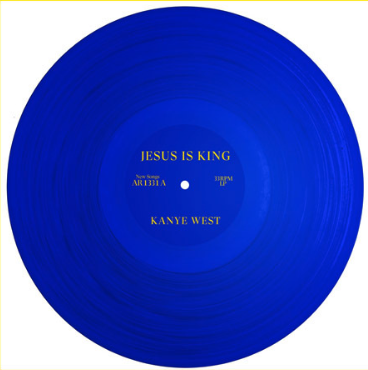Four possible choices to defeat identity politics.
Kanye Actually Did It

Blinking in disbelief, Christians are realizing that “Jesus Is King” means what it says.
When Kanye West’s new album, “Jesus Is King,” dropped last week, my Twitter timeline resembled a support group meeting for recovering abuse victims. Many of my followers are conservative Christians, and they emerged—wary, skittish, but achingly hopeful—to hear what Ye had to say about his return to Christ.
On one level they were concerned that Kanye would make a mockery of the thing—he is famously arrogant to the point of blasphemy (“I Am A God” is the title of a song from earlier in his career), and his public persona is at best mercurial, at times unhinged. On the other hand, previous offerings—most notably 2004’s “Jesus Walks”—had expressed profound spiritual struggle and yearning: “I want to talk to God, but I’m afraid because we ain’t spoke in so long.” There was every chance that this was a very real, very public and high-profile moment of redemption. But it was equally possible that West might come out with something heretical or at least bizarre.
And on a deeper level, my traditionalist friends were suspicious because rap, hip-hop, and pop music are often flatly antagonistic toward them and their beliefs. Earlier this year Taylor Swift came out with the music video “You Need To Calm Down,” a candy-colored gay fantasia with a message for all who consider homosexuality and transgenderism anything other than normal, beautiful, and worthy of celebration. The message was: “You need to just stop / Like can you just not…?”
T-Swift encapsulates perfectly the venomous disdain, glossed and packaged as youthful positivity, with which most great luminaries of the pop scene treat old-fashioned values. Such disdain is expressed not only directly as in Swift’s work, but also indirectly in the form of aggressively explicit sexual posturing (watch, if you care to, the music video for Nicki Minaj’s “Anaconda” or Katy Perry’s “Bon Appétit”) and in the violent nihilism of artists like Eminem and Tupac Shakur. These giants of the industry present the degradation of self and other with a brazenness that implicitly demands either acquiescence or ostracization: get on board with this or be risible, irrelevant, and out-of-touch.
The attitude of pop music distills and concentrates the attitude of pop culture more generally, so doctrinal Christians have largely inferred that they cannot be cool. Or else that they can only be cool ironically, at a remove. The two available orthodox stances on this issue have been repudiation (“I don’t watch Game of Thrones and neither should you”) and strained tolerance in the form of ostentatious enjoyment (“yeah man, I watch Game of Thrones—how do you do, fellow kids?”). What is simply not available to traditionalists is ownership—they cannot, unless they abandon their convictions, treat mainstream music or television as something to be wholeheartedly endorsed without qualification.
This, I think, is why such people approached “Jesus Is King” with a kind of grim fascination, holding their breaths and cringing even as they compulsively streamed the album: they couldn’t look, and they couldn’t look away. Then slowly, with ever-deepening enthusiasm, it dawned on them that the man had actually been saved. The album is a largely unobjectionable and ostensibly sincere profession of faith.
Christians responded accordingly. “From what I’ve heard so far [it] seems pretty? Sound theologically?” one of my friends ventured cautiously on her first listen. Sohrab Ahmari of the New York Post tweeted: “Kanye’s ‘Closed on Sunday’ [an early track on the album] is one of the most reactionary things ever injected into the mainstream of American culture. I love it.” David French quote-tweeted West approvingly, and Andrew Walker at National Review wrote that Kanye is “just the figure…to bring a needed message that our society should reconsider what it deems praiseworthy.”
In one later track on the album (“Hands On”), Kanye worries that moralizing Christians will be the first to judge him for claiming Christ despite his checkered past. He could be forgiven for thinking so. In the event, though, the reaction from the Christian Right has mostly been gradual but passionate praise. Kanye has been compared to the prodigal son, to the repentant prostitute, to Saint Augustine—to all those heroes of faith whom God used for great things despite their great failings. That’s a bit much, but it tells you something: by and large, the Christian Right is remarkably ready to welcome anyone who can speak the Gospel into the culture from within the culture itself.
Compare this reaction with those of more putatively urbane cultural outlets, which have regarded Kanye’s conversion with slack-jawed incomprehension. Spencer Kornhaber wrote in the Atlantic that “Jesus Is King” consists largely of “pillow stitchings about devotion.” Noting Ye’s newfound commitment to sexual purity, Rawiya Kameir of Pitchfork said that “his interpretation of the gospel has been more dogmatic than faithful” (a meaningless distinction) and that “there is not enough depth here to distract from his [pro-Trump] politics, or to complicate them.”
There actually does not exist any room in mainline cultural commentary for the notion that a true encounter with the risen Lord might have occasioned a genuine transformation in West’s previously embattled and troubled soul. Faced with such a reality, reviewers have only snide belittlement to offer, and fallback accusations of inanity. But “Jesus Is King” is not inane: it is raw, muscular, and direct, a blunt rebellion against an ever more depraved society: “no more living for the culture, we nobody’s slave.”
“We nobody’s slave.” That is what critics cannot abide or understand, and what Christians are now welcoming with gratitude and recognition: the Gospel does not play by anybody’s rules. The wisdom of the cross is folly to those who are perishing, and “Jesus Is King” can only be folly to those who believe that its title is a lie. But this does not deter Christ, who enters into spaces that are furiously hostile toward him—spaces like pop music, or Kanye West’s heart—and claims them as his own.
The American Mind presents a range of perspectives. Views are writers’ own and do not necessarily represent those of The Claremont Institute.
The American Mind is a publication of the Claremont Institute, a non-profit 501(c)(3) organization, dedicated to restoring the principles of the American Founding to their rightful, preeminent authority in our national life. Interested in supporting our work? Gifts to the Claremont Institute are tax-deductible.
The divide between church and state doesn’t separate religion from public education.
Don't bend the knee to wokeism.
How radical relativism leads to ideological fanaticism.
Conservatism and vampire stories.
Liberal Jews are desperate to maintain the delusion that their major enemies are outside the house.






